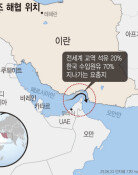Real GNI Falls to Lowest Level in Decade
Real GNI Falls to Lowest Level in Decade
Posted December. 03, 2008 05:19,
Real gross national income (GNI) fell to its lowest level since the 1997 Asian financial crisis due to soaring prices of international crude oil and raw materials.
The Bank of Korea said yesterday that real GNI contracted 3.7 percent from the previous quarter and 3.5 percent year-on-year, the biggest drop since the fall of 9.6 percent in the first quarter of 1998.
Real GNI reflects real purchasing power of income earned through production activities. The index is calculated by adding net factor income from abroad and trading losses and gains to GDP. The fall in real GNI indicates a drop in purchasing power, meaning people cannot purchase as many goods and services with their income as expected.
The reason for this is that though the third quarter saw moderate growth, record-high trade losses of 33.4 trillion won (22.8 U.S. billion dollars) were seen in the same period, stemming from skyrocketing prices of raw materials including crude oil.
The countrys GDP, or the value of all goods and services produced in the economy over a given period, expanded 3.8 percent in the third quarter year-on-year and 0.5 percent from the previous quarter, falling by one percent from the estimate released in October. The growth was the slowest in three years quarter-on-quarter.
When real GNI shrinks, the ensuing drop in consumption worsens the real economy.
Gross national disposable income in the third quarter fell 0.4 percent compared to the second quarter. The net savings rate also fell from 31.9 percent in the second quarter to 30.5 percent in the third.
Experts said real GNI will improve in the fourth quarter as terms of trade improve thanks to falling oil prices. Jitters over the global economic crisis, however, could hurt the real economy and economic growth could fall below three percent in the fourth quarter.
parky@donga.com







